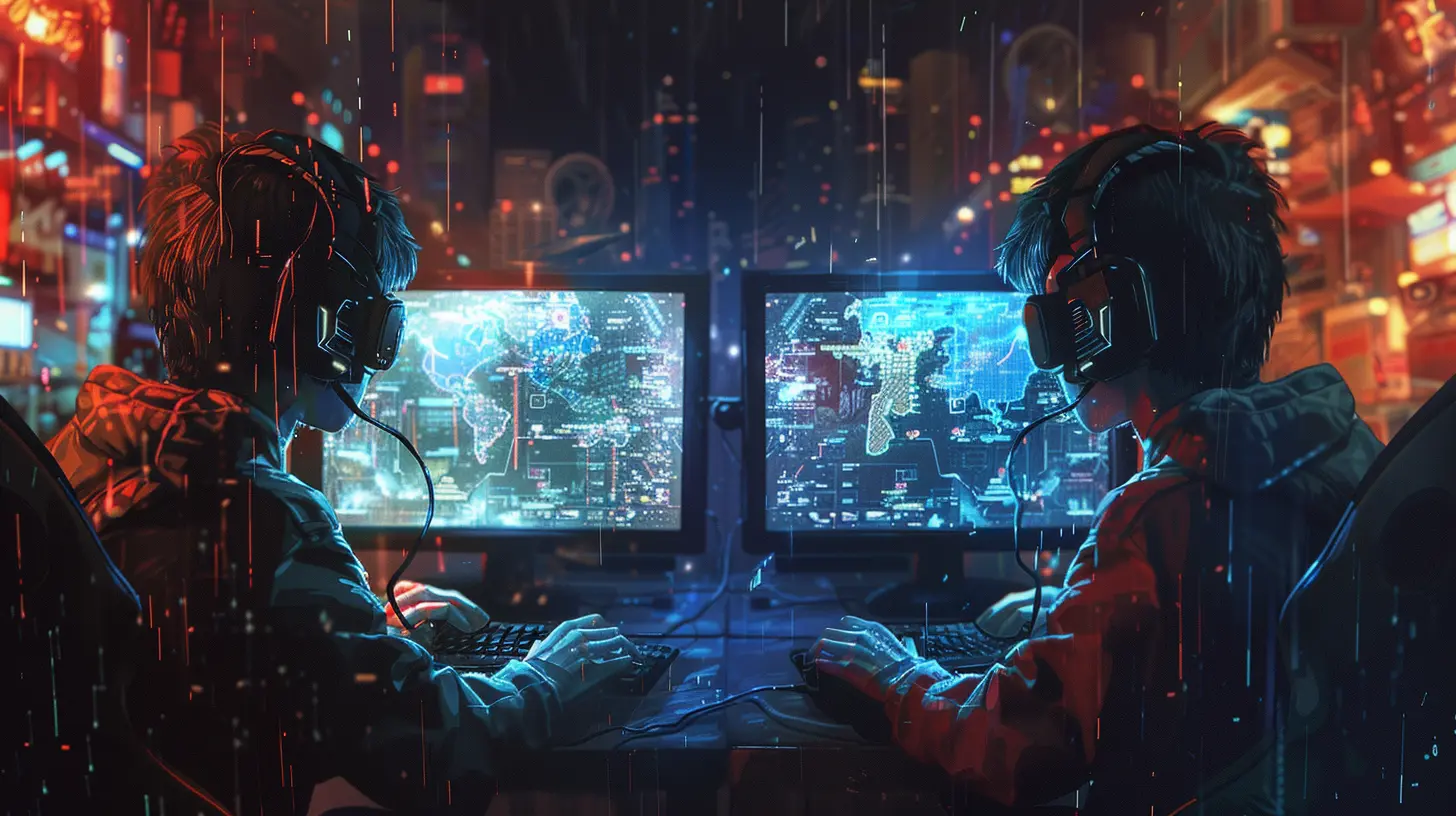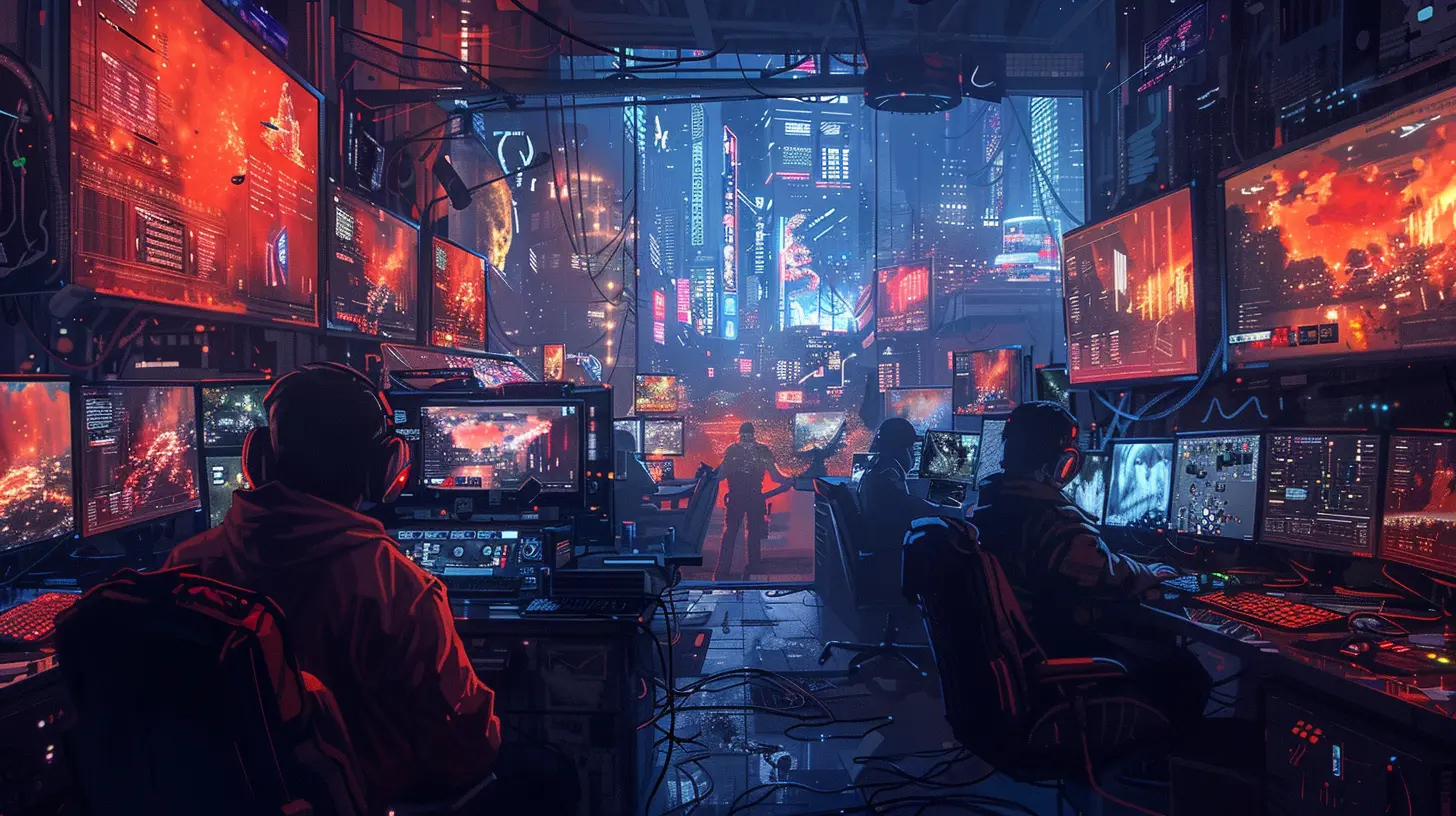The Line Between Moderation and Censorship in Gaming Forums
21 October 2025
Gaming forums — those virtual playgrounds where players gather to share epic wins, hilarious fails, and rage-fueled rants. It’s where communities form, memes are born, and debates rage harder than a final boss fight on hardcore mode.
But here's the deal: as these forums have grown and evolved, so has the need to keep things respectful, safe, and (let’s be real) not completely bonkers. That’s where moderation steps in. However, as the banhammers drop and threads disappear, another question emerges like a sneaky side quest: when does moderation turn into censorship?
Let’s dive deep into this sometimes-touchy topic and figure out where that fine line really lies.
🎮 What Is Moderation in Gaming Forums?
Alright, let’s start with the basics. Moderation is like the janitor, referee, and neighborhood watch of any online space all rolled into one. It's there to keep things clean, fair, and fun — you know, so the trolls don't take over and turn everything into chaos.In gaming forums, moderators (or “mods” as we lovingly call them) enforce community guidelines. These are the rules of the road — don't be a jerk, no spamming, no offensive content, and yes, please stop linking dodgy websites that claim to give you “unlimited V-Bucks.”

✅ The Good Side of Moderation
Good moderation creates a chill, welcoming space. It ensures that newcomers don’t get roasted just for asking if you can pet the dog in a game. It stops flame wars before they go nuclear. And most importantly, it protects people from hate speech, harassment, and those keyboard warriors who seem to think every disagreement requires a full-on verbal brawl.Think of mods as the invisible guardians of fun — much like the NPCs who keep your favorite in-game towns from descending into total anarchy.
🚫 What About Censorship?
Okay, now here’s where things get spicy. Censorship is when content is removed or suppressed not because it's against the rules, but because someone doesn’t like the opinions being expressed.Imagine posting a well-argued critique of a game’s monetization model, only to have it wiped clean into the void because it “makes the devs look bad.” That’s not moderation — that’s censorship, and it can feel like being silenced for simply speaking your mind.
Censorship tends to stifle discussion and punish people for not falling in line. And in gaming forums, where passion runs high and opinions fly faster than bullets in a Call of Duty match, this can get ugly fast.
🧭 The Fine Line Between the Two
So where’s the line between moderation and censorship? It's a bit like trying to dodge red shells in Mario Kart — tricky but not impossible.Here’s a helpful way to break it down:
- Moderation = Enforcing rules to maintain a healthy space.
- Censorship = Silencing opinions just because they’re unpopular or controversial.
If someone’s dropping racial slurs or doxxing other players? That’s a mod’s cue to hit the eject button — and rightly so.
But if someone says, “I think this game is overrated and here’s why,” and it gets deleted because the devs or community leaders don’t like it? Yeah, that’s veering into censorship territory.
🗣️ Why This Balance Matters
Gaming is all about community. It thrives on discussion, debate, and yes, even drama (just not the toxic kind). When forums are over-moderated to the point where only positive vibes are allowed, it creates a kind of Stepford-gamers situation. Everything looks perfect on the surface, but underneath? People feel stifled, frustrated, and unheard.And let’s be honest — gaming has always had a rebellious spirit. We’re the crowd that roots for underdogs, cheers for glitchy speedruns, and debates lore like it’s life or death. Silencing that passion doesn’t make things better; it just drives people to darker corners of the internet where moderation doesn’t exist at all.
🤖 Automation: Friend or Foe?
Many forums now use automated moderation systems. Bots scan posts for banned words, flag content, and sometimes even suspend users without a single human ever looking at the context.While automation can help catch obvious rule-breakers (like spammers selling gold or hackers bragging about exploits), it’s not exactly nuance-friendly.
Ever had a post flagged just for saying something was “sick” (as in awesome) and the bot thought it was medical misinformation? Yep. Bots don’t get sarcasm, slang, or context. They’re like trying to talk feelings with a toaster.
That’s why human oversight is crucial. Mods need to understand the tone, humor, and intent behind posts — not just count keywords.
📢 Power Trips and Mod Abuse
Let’s don’t pretend this never happens — sometimes, mods let the power go to their heads. They start ruling forums like tyrants, banning users for minor offenses or deleting posts that challenge their authority.It’s rare, but it’s real. And when it happens, it sucks the joy out of communities faster than a lag spike in a ranked match.
That’s why transparency and accountability are key. Mods should clearly explain why something was removed, offer warnings before bans, and be open to constructive feedback themselves. After all, being a mod doesn’t mean being infallible — it means being responsible.
🧩 The Role of Forum Rules and Community Guidelines
Every forum has rules — or at least they should. But here’s the tricky part: vague rules can be twisted any which way. “No negativity,” for example, sounds nice on paper but can easily be abused to shut down criticism.Clear, specific guidelines help define what’s allowed and what’s not. They set the expectations upfront, and when followed consistently, they make moderation feel fair instead of arbitrary.
Good forums also involve the community in forming these rules — through feedback posts, polls, or even just open discussion. When the players have a say, they’re more likely to respect the boundaries.
💬 The Value of Constructive Criticism
Let’s not forget: gamers are passionate. We care deeply about the games we play, because they’re more than just pixels on a screen — they’re stories, challenges, and social spaces all in one.So when someone points out flaws or suggests improvements, it’s usually coming from a place of love. Without criticism, developers wouldn’t know what’s broken. Without feedback, games don’t grow.
Silencing critics doesn’t protect the community — it weakens it. Forums should encourage thoughtful, respectful critique — because that’s how we all get better.
🎯 Striking the Right Balance
So how do you walk the line between keeping forums civil and allowing free speech?Here's a handy cheat code:
- Be transparent: Let users know why content is moderated.
- Be consistent: Apply rules evenly — no playing favorites.
- Be human: Context matters more than a checklist.
- Be open: Invite feedback about moderation practices.
At the end of the day, forums are digital campfires. We gather around them to share stories, swap tips, and bond over the games we love. It's up to mods and community members alike to keep that fire burning — without letting it rage out of control or smothering it altogether.
🕹️ Real-Life Examples — The Good, The Bad, and The Ugly
Let’s look at a few real-world examples (names anonymized to protect the salty):- The Good: A popular RPG subreddit once faced a flood of posts about a buggy new release. Instead of deleting complaints, mods pinned a “bug megathread” to keep things organized and let everyone vent constructively. Brilliant move.
- The Bad: A forum for a competitive FPS banned users who criticized the game’s new ranking system, calling it “negative behavior.” Many users left for a rival game’s forum. Oof.
- The Ugly: In a fan forum for an indie game, mods shut down discussion after some fans raised concerns about representation in the game’s story. The backlash? Massive. Trust was broken, and the community fractured big time.
Patterns? Over-censorship leads to disengagement or even rebellion. Open communication builds trust.
🧠 Tips for Forum Users: How to Stay On the Right Side of the Rules
Let’s flip the perspective. If you're a forum user trying to stay out of timeout, here are a few pro tips:- Read the rules (seriously, just do it).
- Vent with respect — it's cool to criticize, just don't be cruel.
- Avoid personal attacks (we're all here for the games).
- Don't feed the trolls (they want drama, not dialogue).
- If a mod warns you — listen first, argue later (politely).
Being part of a gaming forum is like being part of a team — it works best when everyone plays their role.
🎉 Final Thoughts: Keep It Real, Keep It Respectful
Gaming forums are magical places — digital taverns where we come together to laugh, cry, and argue over whether Final Fantasy VII or X is better (spoiler: it’s subjective!).Moderation should be the shield that protects the fun, not the sword that silences it. Censorship? That’s the shadowy villain we need to avoid, lurking in the corners of control.
So here’s to balancing freedom with fairness, passion with politeness, and criticism with kindness. Game on, forum fam.
all images in this post were generated using AI tools
Category:
Online ForumsAuthor:

Greyson McVeigh
Discussion
rate this article
1 comments
Liv Clark
This article effectively highlights the fine balance between necessary moderation and overreaching censorship in gaming forums. It’s crucial for communities to foster open dialogue while maintaining respect and safety. Transparent guidelines can help ensure that moderation supports, rather than stifles, discussion.
November 6, 2025 at 5:20 AM

Greyson McVeigh
Thank you for your insight! I completely agree that transparent guidelines are essential for fostering a respectful and open community while maintaining necessary moderation.


